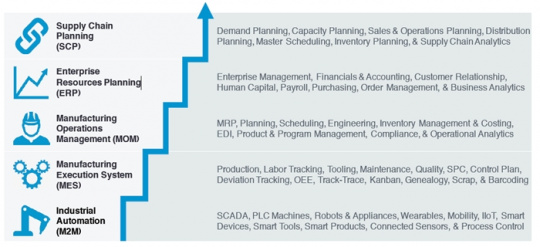Is Manufacturing Execution System a good candidate for Cloud Computing?
The term Manufacturing Execution System was initially devised to include bright controllers often called as System Control and Data Acquisition (SCADA). A complete ecosystem grew up about this idea, with devices, sensors and applications cooperating with each other, mostly detached from the Enterprise Resource Planning (ERP) business systems.
A manufacturing execution system (MES) offers the footing for processes to plan, achieve, and track each step during manufacture. But in current manufacture environment, more gear and machines are becoming connected, and they need to be linked to manufacturing execution systems to provide actual actionable data. With this kind of data accessible to your operations team, they can keep an eye to increase uptime, decrease costs, and recover productivity.
More industrialists see the advantage of today’s digital and cloud ERP skills to take manufacturing execution systems beyond the shop floor to generate a system that ultimately impacts the entire business.
Here we discuss some points which prove that MES is suitable for cloud computing:
Shop Floor Visibility with Manufacturing Execution System
What if the manufacturing execution systems combined with ERP software and other business systems? The potential to use and examine adequate data to support business decisions become unlimited, and it doesn’t end with your business. Integrating manufacturing execution systems with ERP and linking with your customers and suppliers means you can gather data across your entire supply chain.
Visualize the effective decision-making that would be accessible if your manufacturing execution systems solution was “aware” if call changes upstream from your consumers such that it could effect changes down to your suppliers.

Source – KnowledgeNile
Cloud Connectivity with Manufacturing Execution System
Most traditional manufacturing execution systems solutions are on-premise because the quantity of data coming from the automation layer is too fast for the bandwidth to the cloud, but more and more cloud-based manufacturing execution systems are being accepted to preserve the bonded connection with ERP and supply chain. The cloud carries on-demand scalability as your business grows and it is planned to be connected, so it participates much more directly with other systems.


Comments
Post a Comment